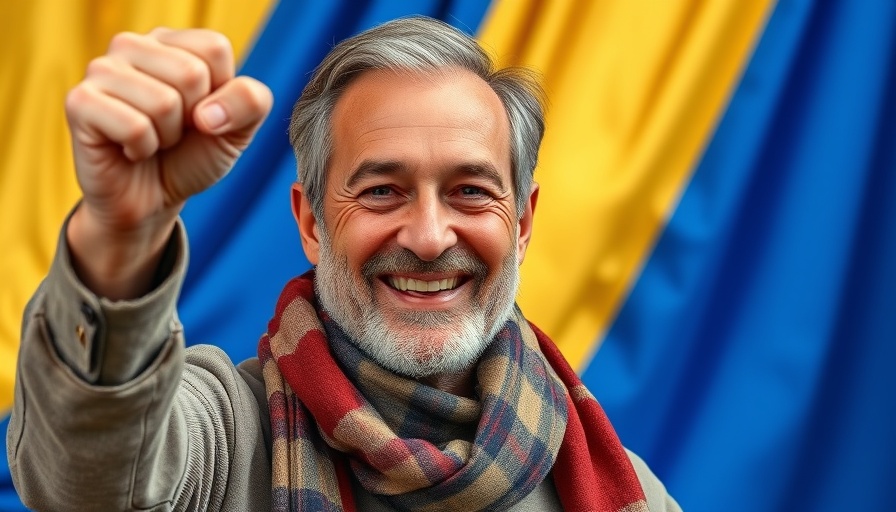
The Unspoken Rules of Hollywood Activism
Hollywood has become a prominent stage for political expression, with artists and creators using award shows as a platform to air their views on various social issues. However, the incident at the recent Emmy Awards, where Spanish actor Javier Bardem donned a keffiyeh, accentuates a troubling trend: support for Palestinian causes is widely celebrated, while any expression of solidarity with Israelis is met with disdain. This double standard raises questions about the cultural narratives dominating our society today.
Understanding the Double Standard
Javier Bardem's choice of attire at the Emmys became a symbol of the prevailing sentiment in Hollywood—approval of pro-Palestinian expressions against an apparent suppression of pro-Israeli voices. The boundaries of acceptable political expression are dictated by cultural trends, creating an environment where stakes are high for those who dare to challenge the narrative. The underlying message is clear: you can advocate for causes that align with popular sentiment; however, deviating from this path may lead to professional repercussions or social ostracism.
Implications for Social Justice Advocacy
This phenomenon not only affects artists and celebrities but also resonates with communities beyond Hollywood's reach. Many social justice advocates, including those from Christian backgrounds, may feel pressured to align with the narrative that garners applause from influential circles. This creates a conflict for humanitarian-focused individuals who strive for balanced perspectives while working to support communities in distress.
Complex Realities on the Ground
The current discourse around Gaza and Israel is nuanced, shaped by historical grievances, humanitarian crises, and geopolitical complexities. For Christians engaged in interfaith dialogue or supporting the persecuted church, understanding these dynamics is essential. Balancing advocacy with a fair representation of both Palestinian and Israeli narratives can foster reconciliation and empathy rather than division.
Future Predictions and Opportunities
As global awareness around social issues continues to evolve, the responsibility falls on advocates and engaged individuals to challenge the status quo. There may be a forthcoming shift where more voices feel comfortable expressing diverse perspectives, including those that support Israel. This could lead to richer conversations and a more inclusive atmosphere, benefiting global outreach efforts and interfaith relations.
Actionable Insights for Advocacy
For the millions of supporters of social justice and humanitarian efforts, understanding the implications of Hollywood's activism can inspire them to advocate thoughtfully. It’s vital for advocates—especially those from faith-based communities—to remain informed and to voice a unique perspective that embraces complexity, empathy, and understanding. Joining local discussions, engaging on social media, and reading more about the geopolitical landscape can empower advocates to create positive change.
A Call to Engage
The ongoing narrative in Hollywood and beyond serves as an invitation for Christians and social justice advocates alike to step into conversations that matter. Engaging with nuance and compassion allows for a richer, more diverse dialogue, ensuring that all narratives are heard. Let’s promote a culture where dialogue thrives, and the complexities of faith and politics intertwine healthily. This is our moment to inspire change through informed advocacy!
 Add Row
Add Row  Add
Add 








Write A Comment